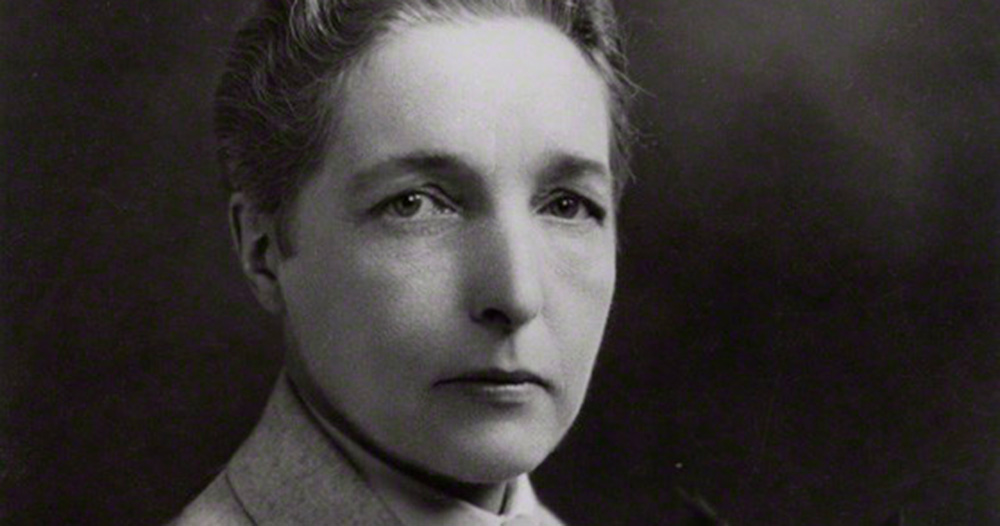Written by popular British author Radclyffe Hall, The Well of Loneliness was the first lesbian novel to be censored. It followed the story of Stephen Gordon, an upper-class Englishwoman exploring her queerness, and after a court case in November 1928, it was banned for being an “obscene libel”.
Hall was born in 1880 to a wealthy family. She started writing at an early age to deal with her emotionally unavailable mother and absent father.
In 1928 in the UK, very few works had been published about same-sex relationships, most of them being medical publications. Although relations between men were illegal, the situation for women was quite different.
Hall’s book brought attention to queer women and their experiences in a homophobic society. Back then, homosexuality was often referred to as ‘sexual inversion’.
The participation of women during the First World War sparked some changes, including in society’s attitude towards suffrage and the increasing presence of marginalised voices in public discourses. In Europe, queer women made their way into elite circles in Paris, enabling the growth of lesbian subculture.
As a result, Radclyffe Hall felt that society was finally able to confront ‘sexual inversion’. The Well of Loneliness was then published during that time to, according to Hall, serve the misunderstood and the persecuted.
When the book was first published, it fired up a public debacle, starting with an article from The Sunday Express. James Douglas led a campaign in August 1928 to condemn Hall’s work, calling it “an intolerable outrage” and a “book that must be suppressed”.
Douglas’ denunciation led to the withdrawal of the book by the Minister of the Interior, Sir William Joynson-Hicks, making The Well of Loneliness the first lesbian novel to be censored.
After Douglas’ article, The Lady’s Pictorial counterargued: “There is absolutely nothing in it to offend anyone; except, those whom I will call the human ostriches – the man or woman who is ready and willing to condemn everything they do not understand and to bury their heads in the sand.”.
It was on November 9, 1928, that the The Well of Loneliness case was brought to Bow Street Magistrates Court in London. For a literary work to be considered obscene, it depended on whether the book could “corrupt” the readers to “immoral influences”.
The judgement only consisted of the chief magistrate’s decision. He first stated that it was possible to write about same-sex relationships as long as they were considered a vice that was imperative to resist. He even went on to underline that ‘inverted’ women needed sympathy; their appeal to masculine behaviours and characteristics wasn’t a choice, but an accident of birth.
The Well of Loneliness being the first lesbian novel to be censored was mainly because of the magistrate’s objection to the characters’ opinions. The book offered a tragic representation of what it was like to be queer in 1928, describing society as cruel and foolish, which didn’t please the magistrature.
To illustrate that point, the ‘Angela Case’ and the ‘Mary Incident’ were pointed out in court. The first refers to the beginning of the book, as Stephen has a love affair with a married woman called Angela, who’s expelled from her home after her mother found out. Stephen states in the book that this love made her feel “gentle, it was good, good, good”. The emphasis was unacceptable for the court.
Then, the ‘Mary Incident’ refers to Stephen falling for an ambulance driver called Mary. Through the pairing, Radclyffe Hall portrays the many lesbian relationships that occurred during the First World War.
Mary and Stephen were portrayed as “…lovers who walked in the vineyard of life, plucking the warm sweet fruits of that vineyard. Love had lifted them up as wings of fire, had made them courageous, invincible, and enduring…”
Because Hall’s book didn’t refer to resisting an innate way of being but embraced queerness, the judge decided to ban it. The last scene in particular was described by him as a “hysterical passage”, as Stephen’s character pleads for God’s mercy and tolerance, and in the end realises that “inverts” are loved by God.
The Well of Loneliness ultimately became the first lesbian novel to be censored because it pled for tolerance, acceptance and love. It was not banned because it referred to lesbian relationships, but because they were celebrated and rejected a homophobic society.
After the case, it was ordered that all copies of Hall’s novel be destroyed in the UK. However, it was still published in Paris and in the US where it gained much recognition.
Authors like V. Wolf, T. S. Eliot and E. M. Forster defended the book during and after the case, as well as thousands of readers who would send letters to Radclyffe Hall. It wasn’t until 1954 that the first censored lesbian novel reappeared in British bookstores, as the ban was lifted in 1949, six years after Hall’s death.
Whether through the story itself or the court case, The Well of Loneliness shaped lesbian literature and culture over the 20th century. To this day, there is still much debate regarding the quality of the book, as well as Radclyffe Hall’s character, as she was known for her conservative and fascist politics. Even so, her work became a queer classic, and her masculine style and cropped hair became markers of lesbianism.
© 2024 GCN (Gay Community News). All rights reserved.
Support GCN
GCN is a free, vital resource for Ireland’s LGBTQ+ community since 1988.
GCN is a trading name of National LGBT Federation CLG, a registered charity - Charity Number: 20034580.
GCN relies on the generous support of the community and allies to sustain the crucial work that we do. Producing GCN is costly, and, in an industry which has been hugely impacted by rising costs, we need your support to help sustain and grow this vital resource.
Supporting GCN for as little as €1.99 per month will help us continue our work as Ireland’s free, independent LGBTQ+ media.
